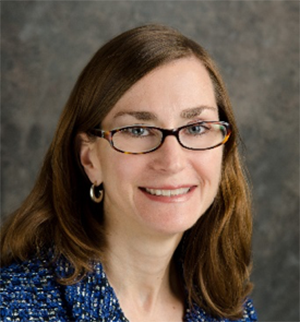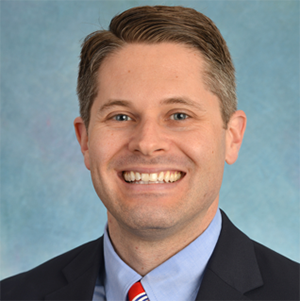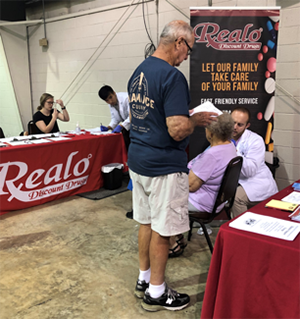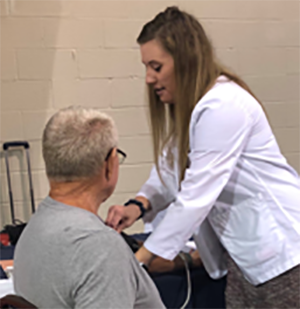December 2019 Vol. 5
Welcome to the UNC Eshelman School of Pharmacy Newsletter for Experiential Partners and Preceptors! Newsletters will share updates about the School and Experiential Programs, recognize our preceptors and students, and provide teaching pearls for preceptors.
Preceptor Recognition
We would like to congratulate several preceptors who have been promoted through the School’s adjunct faculty review process. These individuals are recognized for exemplary and sustained involvement with education, scholarship, and service to the School and the profession.
Promoted to Associate Professor of Clinical Education:
 Maurice Alexander, PharmD, BCOP, CPP
Maurice Alexander, PharmD, BCOP, CPP
Lead Clinical Pharmacist, Oncology Services
Clinical Pharmacist Practitioner, Bone Marrow Transplant and Cellular Therapy
UNC Medical Center
Clinical Manager, Ambulatory Care Clinical Services
UNC Hospitals
Clinical Pharmacist Practitioner, Cardiology
UNC Heart Center at Meadowmont
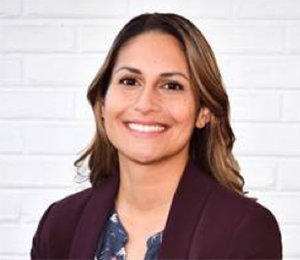 Jennifer J. Kim, PharmD, BCPS, BCACP, CPP
Jennifer J. Kim, PharmD, BCPS, BCACP, CPP
Clinical Pharmacist Practitioner, Cone Health Internal Medicine
Assistant Director of Pharmacy Education, Greensboro AHEC
Click here for more information about the adjunct faculty or promotion process with the School.
Preceptor Spotlight
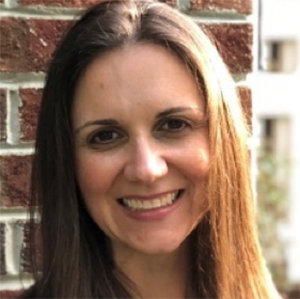 Christina Nunemacher, PharmD, BCGP
Christina Nunemacher, PharmD, BCGP
Christina Nunemacher is a clinical pharmacist with Realo Drugs in Jacksonville, NC, where she helped establish and currently oversees chronic care management, remote patient monitoring, and value-based care services for older adults through partnerships with providers throughout the state of NC as well as local home health agencies. She is a graduate of the University of the Sciences in Philadelphia and Shenandoah University and is a Board Certified Geriatric Pharmacist.
Dr. Nunemacher, when asked about how students are integrated at her site shared, “We couldn’t provide the services we do without the help of pharmacy students. They function like an extra arm of our pharmacists. Students attend community outreach events with us to provide vaccines and point-of-care testing. They also play a vital role in completing clinical platform tasks. Working on these tasks gives them a chance to see firsthand how the traditional role of a community pharmacist has evolved to encompass both dispensing and clinical functions. While students at our site do spend time learning how to fill and dispense prescriptions, we are careful not to rely on them as simply extra staff. Instead, we challenge them to perform blood pressure checks, administer vaccines, and assist with drug information requests and patient consults. In this way, students help to extend the care that our pharmacists provide while honing valuable skills in the process. It’s a ‘win-win’. We’re also committed to having students work only on projects that will have a meaningful and lasting impact on our practice site. For example, one student created a learning library in our pharmacy; stocked with professional, patient-friendly materials from the CDC, the American Heart Association, and other agencies. A legacy project like this stands long after a student’s rotation ends and serves as an example and inspiration for future students. It’s also a value-added service in our pharmacy that we would not otherwise have had time to develop.”
In terms of her teaching philosophy, Dr. Nunemacher stated, “Our approach to the rotation experience doesn’t change regardless of whether a student intends to pursue a career path in community path or not. We recognize rotations as an integral part of a student’s pharmacy education. It’s vital that we meet their needs as individual learners and as future colleagues. But the most important thing is that we help a student learn something about themselves, as well as the profession of pharmacy, that they didn’t know before.”
Student and Site Spotlight
In August 2019, several UNC immersion and advanced immersion students and UNC PGY1 Community-based Pharmacy residents participated in a point-of-care event with Realo Discount Drugs in Jacksonville, NC. The Senior Expo, a large community health event, is organized by Onslow Memorial Hospital and the Onslow County Health Department. Realo Residency Site Coordinator Christy Holland, PharmD stated that “our students play a huge role in this event every year, and the participants look forward to seeing our ‘crew’ there. The students administered flu vaccines and administered over 250 blood pressure screenings. They also provided an overview of innovative services at Realo such as adherence packing, delivery, med sync, and specialty care. The ‘What’s Your Next 10’ team performed 200 stroke screenings.” Realo preceptor Christina Nunemacher, PharmD, BCGP, organized the students and residents for this event.
Thomas Hawkins (CO2019) noted, “Seeing the change that small acts of kindness can make in a community gives me great joy and motivates me to advance patient care as a future pharmacist.” Gloria Adedoyin (CO2021) shared, “…the event was a great opportunity for us to refresh our skills on blood pressure and vaccinations. I am a huge fan of disseminating health information to the public….” The event “was great practice for us and the patients were very grateful”, per Cristian Caveness (CO2021).
Blood Borne Pathogen Policy Update
Abbey Kruse, M.Ed.
Preceptors and students may wonder what action should be taken in the event of a blood borne pathogen exposure, such as with a needle stick.
In the event of an exposure event, immediate action is required as outlined here. In brief, the following steps should be taken promptly by student pharmacists:
- Immediately clean the affected area.
- Immediately notify the preceptor or preceptor designee.
- Obtain source patient information.
- Call Campus Health Services at 919-966-6573. If the exposure occurred at a clinical site outside of Chapel Hill, still call Campus Health Services and follow the instructions provided. Note: Students will be connected to medical personnel that can assist them with the blood borne pathogen exposure. If Campus Health Services is closed, students will be connected to an automated message which will then transfer them to a Health Link nurse. The Health Link nurse will contact the Campus Health Services physician on call for them.
- The preceptor or student pharmacist should notify the Office of Curricular and Student Affairs by calling the Eshelman Care Line at 919-813-0481 as soon as possible.
The preceptor should detail the event via email to Abbey Kruse, Assistant Director of Curricular and Student Affairs, Experiential programs (abbeykruse@unc.edu) after the exposure incident.
For further information, please refer to the CDC guidelines.
Preceptor Pearl
Generations of Learners Change-Do I Need to Change Too?
Charlene Williams, PharmD, BCACP, CDE
As Generation Z or the iGen generation of learners begins to enter schools of pharmacy (born approximately between 1995-2015), preceptors may be wondering if they may need to adapt their teaching styles to these learners.
Data are still emerging on Generation Z as they are just beginning professional school and entering work environments. Given each person’s unique socio-cultural factors, it is important to not generalize generational information or stereotype individuals or groups as not all people will display the characteristics ascribed to their generation.1,2 Generations may also overlap. Nevertheless, preceptors may find some of the emerging information about Generation Z helpful to keep in mind while precepting. Data currently suggests that some individuals in this generation may exhibit:3-4
Read MorePreceptor Wellness Minute
Charlene Williams, PharmD, BCACP, CDE
Gratitude, the process of acknowledging a positive outcome and the external source of the positive result, has been reported to improve well-being including improved physical and psychological health and increased happiness and life satisfaction.1
Examples of gratitude exercises noted in the literature to have positive benefits months after intervention include journaling gratitude, such as recording “Three Good Things” at the end of the each day and writing a gratitude letter to someone (even if the letter is not sent to the person).1
An accountability partner may help instill the habit of gratitude. Sharing your “Three Good Things” with a colleague, family member, or learner is a way some people have incorporated this impactful exercise into daily practice.
Reference
- Greater Good Science Center. Allen S. The Science of Gratitude. 2018. Accessed October 31, 2019. https://ggsc.berkeley.edu/images/uploads/GGSC-JTF_White_Paper-Gratitude-FINAL.pdf
Upcoming Events and Other Information
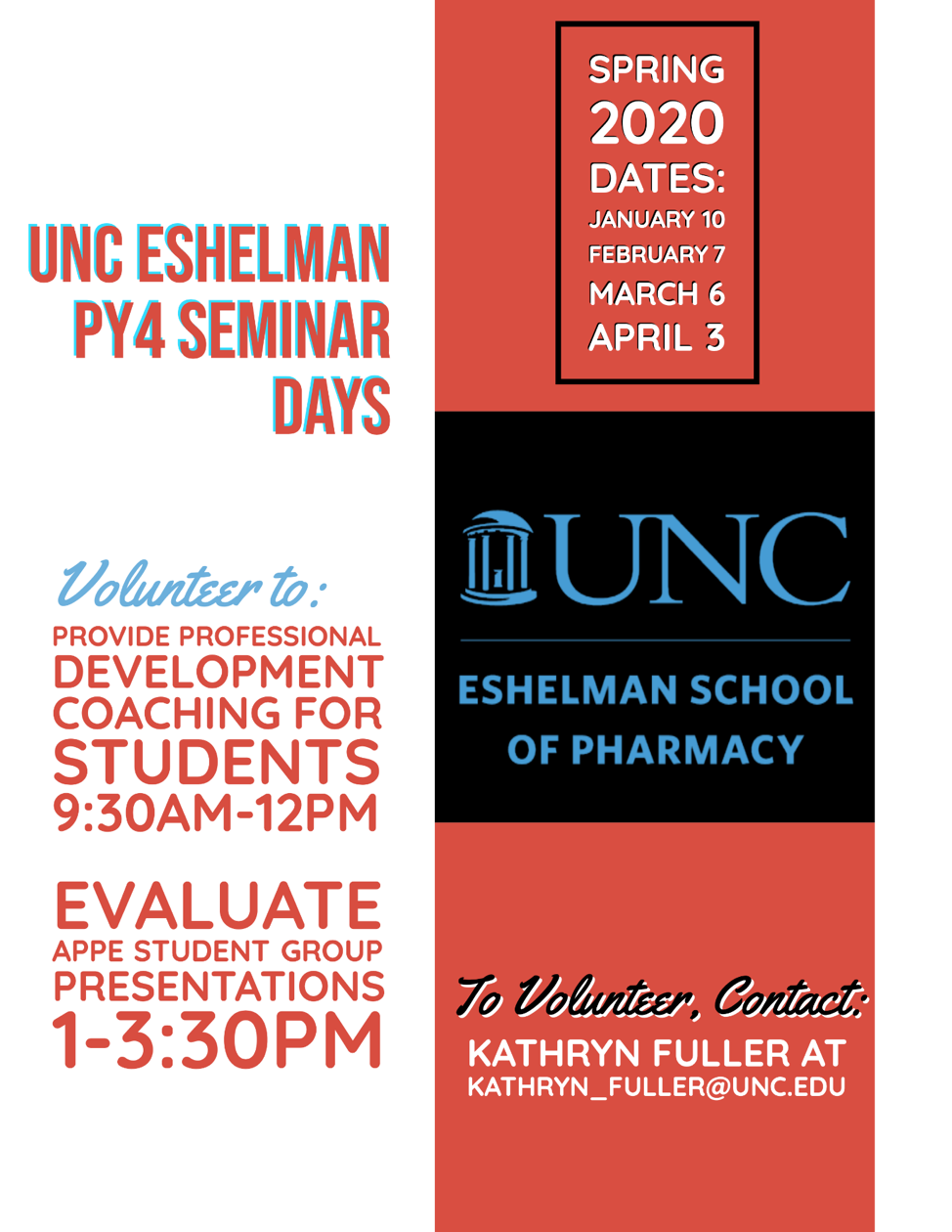
Newsletter Suggestion Box
We would love to hear from you! Please submit your feedback and suggestions for newsletter improvement along with ideas for future content (preceptor spotlight, student spotlight, preceptor pearl, etc.) here: https://unc.az1.qualtrics.com/jfe/form/SV_0UlbSEkLOTRqGmF
Office of Experiential Programs Contact Information
Office Leadership:
Nicki Pinelli Reitter, PharmD, MS, FCCP, CDE
Assistant Dean of Experiential Programs
Leads the strategic vision and assessment of the experiential curriculum and strengthens partnerships with sites and preceptors.
Abbey Kruse, M.Ed.
Assistant Director of the Office of Curricular and Student Affairs – Experiential Programs
Primary contact for student academic, well-being, professionalism, or discrimination/harassment concerns.
Practice Experiences and Preceptor and Student Concerns:
Nicki Pinelli Reitter, PharmD, MS, FCCP, CDE
Interim Director of Practice Experiences: Community
Provides oversight of Immersion and Advanced Immersion experiences and serves as the primary point of contact for guidance regarding experiential policies and procedures, assistance with setting student expectations, structuring learning activities to meet learning experience requirements, and guidance with student evaluations at community pharmacy sites.
Kathryn Fuller, PharmD
Director of Practice Experiences: Health Systems
Provides oversight of Immersion and Advanced Immersion experiences and serves as the primary point of contact for guidance regarding experiential policies and procedures, assistance with setting student expectations, structuring learning activities to meet learning experience requirements, and guidance with student evaluations at health system and nontraditional sites.
Experiential Software Management and Systems Support:
Pam S. Jackson
Preceptor and Partner Specialist
Implements student schedules and manages RxPreceptor accounts. Serves as point of contact for RxPreceptor inquiries, AHEC digital library access, completion of preceptor application and training, and AHEC housing questions.
Student On-boarding and School Requirements:
Billy Justus, MS
Compliance Specialist
Ensures student completion of site-specific onboarding and school requirements (e.g. immunizations, drug screenings, criminal background checks, CPR, HIPAA Training, OSHA Training, TB Status, and other onboarding as required by sites).
Preceptor Training, Development, and Recognition:
Charlene Williams, PharmD, BCACP, CDE
Director of Preceptor Development
Develops and oversees preceptor onboarding, training, development, and recognition. Point of contact for preceptor training and development needs and preceptor newsletter content.
Newsletter Content Editor:
Charlene Williams, PharmD, BCACP CDE
Content Marketing Manager:
Erica McCready
ericamccready@unc.edu


